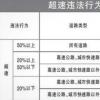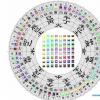Can you explain the main characteristics of subjec
Can you explain the main characteristics of subjects in English? 能否解释英语中主语的主要特征?
请帮忙给出正确答案和分析,谢谢!
参考解答
正确答案:The grammatical category“subject”in different languages possesses different characteristics.In English“subject”may have the following characteristics: A.Word order:The subject ordinarily precedes the verb in a statement such as“Sally collects stamps.” B.Pronoun forms:The first and third person pronouns in English appear in a special form when the pronoun is a subject.This form is not used when the pronoun occurs in other positions:He loves me.I love him.We threw stones at them.They threw stones at us. C.Agreement with the verb:In the simple present tensean-s is added to the verb when a third person subject is singular.Howeverthe number and person of the object or any other element in the sentence have no effect at all on the form ofthe verb:She angers him.They anger him.She angers them. D.Content questions:If the subject is replaced by a question word(who or what)the rest of the sentence remains unchangedas in(b).But when any other element of the sentence is replaced by a question wordan auxiliary verb must appear before the subject.If the basic sentence does not contain an auxiliary verbwe must insert did or do(es)immediately after the question wordas in(d)(e). (a)John stole/would steal Mrs.Thatcher’s picture from the British Council. (b)Who stole/would steal Mrs.Thatcher’s picture from the British council? (c)What would John stealif he had the chance? (d) What did John steal from the British council? (e)Where did John steal Mrs.Thatcher’s picture from?E.Tag question:A TAG QUESTION is used to seek confirmation of a statement.It always contains a pronoun which refers back to the subjectand never to any other element in the sentence:John loves Marydoesn’t he?主语作为一个语法范畴在不同的语言中具有不同的特点。在英语中主语一般具有以下几个特点:A.语序:在陈述句中主语通常位于谓语动词的前面。例如:Sally collects stamps.萨莉集邮。B.代词形式:当主语是代词的时候英语中第一人称和第三人称代词通常以特殊形式出现。当代词出现在句子中的其他位置时不使用充当主语的代词形式。He loves me.他爱我。I love him.我爱他。We threw stones at them.我们朝他们扔石头。They threw stones at us.他们朝我们扔石头。C.主谓一致:在一般现在时态中当主语是第三人称单数时谓语动词后面要添加-s。但是句子中的宾语或其他成分的人称和数的变化根本不会影响谓语动词的形式如:She angers him.她惹怒了他。They anger him.他们惹怒了他。She angers them.她惹怒了他们。D.内容疑问句:如果主语被一个疑问词(who或what)取代句子的其他成分保持不变见句(b)。但当句子的其他成分被疑问词取代时主语前必须出现一个助动词。如果这个基本句子不含有助动词必须在疑问词的后面紧跟上did或do(es)见句(d)和(e)。(a)John stole/would steal Mrs.Thatcher’s picture from the British Council.约翰从英国参议会偷了/要偷撒切尔夫人的相片。(b)Who stole/would steal Mrs.Thatcher’s picture from the British council?谁从英国参议会偷到了/要偷撒切尔夫人的相片?(c)What would John stealif he had the chance?如果有机会约翰要偷什么?(d)What did John steal from the British Council?约翰从英国参议会偷了什么?(e)Where did John steal Mrs.Thatcher’s picture from?约翰从哪偷了撒切尔夫人的相片? E.反意疑问句:一个反意疑问句式用来寻求对一个陈述的确定性。它常含有一个人称代词只能指代前面的主语不能够指代句子中的其他任何成分。 John loves Marydoesn’t he? 约翰爱玛丽不是吗?
Thegrammaticalcategory“subject”indifferentlanguagespossessesdifferentcharacteristics.InEnglish,“subject”mayhavethefollowingcharacteristics:A.Wordorder:Thesubjectordinarilyprecedestheverbinastatementsuchas“Sallycollectsstamps.”B.Pronounforms:ThefirstandthirdpersonpronounsinEnglishappearinaspecialformwhenthepronounisasubject.Thisformisnotusedwhenthepronounoccursinotherpositions:Helovesme.Ilovehim.Wethrewstonesatthem.Theythrewstonesatus.C.Agreementwiththeverb:Inthesimplepresenttense,an-sisaddedtotheverbwhenathirdpersonsubjectissingular.However,thenumberandpersonoftheobjectoranyotherelementinthesentencehavenoeffectatallontheformoftheverb:Sheangershim.Theyangerhim.Sheangersthem.D.Contentquestions:Ifthesubjectisreplacedbyaquestionword(whoorwhat),therestofthesentenceremainsunchanged,asin(b).Butwhenanyotherelementofthesentenceisreplacedbyaquestionword,anauxiliaryverbmustappearbeforethesubject.Ifthebasicsentencedoesnotcontainanauxiliaryverb,wemustinsertdidordo(es)immediatelyafterthequestionword,asin(d),(e).(a)Johnstole/wouldstealMrs.Thatcher’spicturefromtheBritishCouncil.(b)Whostole/wouldstealMrs.Thatcher’spicturefromtheBritishcouncil?(c)WhatwouldJohnsteal,ifhehadthechance?(d)WhatdidJohnstealfromtheBritishcouncil?(e)WheredidJohnstealMrs.Thatcher’spicturefrom?E.Tagquestion:ATAGQUESTIONisusedtoseekconfirmationofastatement.Italwayscontainsapronounwhichrefersbacktothesubject,andnevertoanyotherelementinthesentence:JohnlovesMary,doesn’the?主语作为一个语法范畴在不同的语言中具有不同的特点。在英语中,主语一般具有以下几个特点:A.语序:在陈述句中主语通常位于谓语动词的前面。例如:Sallycollectsstamps.萨莉集邮。B.代词形式:当主语是代词的时候,英语中第一人称和第三人称代词通常以特殊形式出现。当代词出现在句子中的其他位置时,不使用充当主语的代词形式。Helovesme.他爱我。Ilovehim.我爱他。Wethrewstonesatthem.我们朝他们扔石头。Theythrewstonesatus.他们朝我们扔石头。C.主谓一致:在一般现在时态中,当主语是第三人称单数时,谓语动词后面要添加-s。但是,句子中的宾语或其他成分的人称和数的变化根本不会影响谓语动词的形式,如:Sheangershim.她惹怒了他。Theyangerhim.他们惹怒了他。Sheangersthem.她惹怒了他们。D.内容疑问句:如果主语被一个疑问词(who或what)取代,句子的其他成分保持不变,见句(b)。但当句子的其他成分被疑问词取代时,主语前必须出现一个助动词。如果这个基本句子不含有助动词,必须在疑问词的后面紧跟上did或do(es),见句(d)和(e)。(a)Johnstole/wouldstealMrs.Thatcher’spicturefromtheBritishCouncil.约翰从英国参议会偷了/要偷撒切尔夫人的相片。(b)Whostole/wouldstealMrs.Thatcher’spicturefromtheBritishcouncil?谁从英国参议会偷到了/要偷撒切尔夫人的相片?(c)WhatwouldJohnsteal,ifhehadthechance?如果有机会,约翰要偷什么?(d)WhatdidJohnstealfromtheBritishCouncil?约翰从英国参议会偷了什么?(e)WheredidJohnstealMrs.Thatcher’spicturefrom?约翰从哪偷了撒切尔夫人的相片?E.反意疑问句:一个反意疑问句式用来寻求对一个陈述的确定性。它常含有一个人称代词,只能指代前面的主语,不能够指代句子中的其他任何成分。JohnlovesMary,doesn’the?约翰爱玛丽,不是吗?
相似问题
文学文化学可以说是一种最古老而又最新的文学理论形态。此题为判断题(对 错)。请帮忙给出正确答案和分析
文学文化学可以说是一种最古老而又最新的文学理论形态。此题为判断题(对,错)。请帮忙给出正确答案和分析,谢谢!
What does morphology study? 词态学研究的是什么?请帮忙给出正确答案和分析
What does morphology study? 词态学研究的是什么?请帮忙给出正确答案和分析,谢谢!
Determine the original term from which the followi
Determine the original term from which the following words were backformed. 确定下列逆构词最初的形式。 (a)asset (b)burgle (c)ent
According to Austin what are the three acts a pers
According to Austin,what are the three acts a person is possibly performing while making utterance?Give examples. 根据奥斯汀
How do syntactic rules account for the ambiguity o
How do syntactic rules account for the ambiguity of sentences?Draw on your linguistic knowledge of English and paraphrase the












